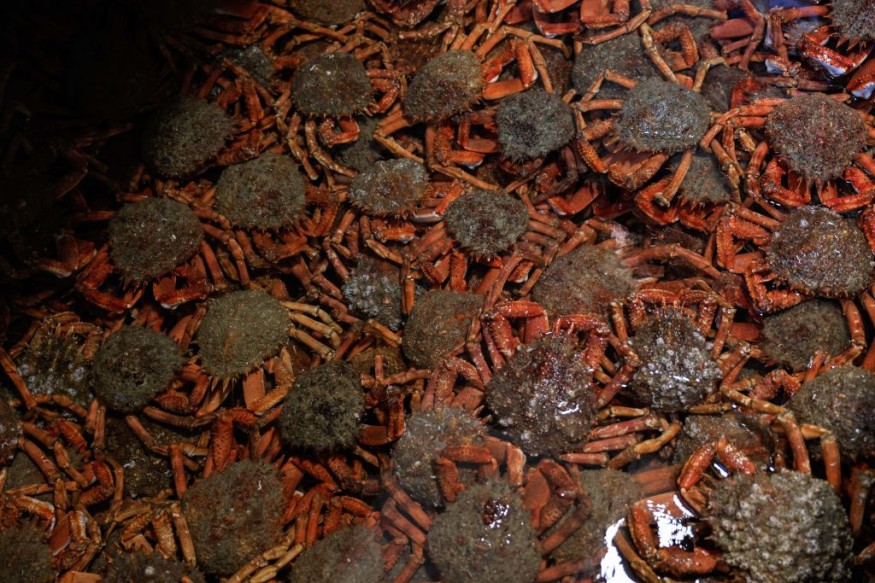Scientists onboard the Thompson attempt to answer complex questions regarding what makes volcanoes tick, notably the Axial Seamount. However, even the most serious scientific investigation may be "crabotaged."
Undersea Mission

Being out in the middle of the ocean aboard the research vessel Thompson means never truly hearing the sea. There's engine noise, exhaust blowers, temperature control, winches, and wind, but there aren't many real waves.
The science never stops aboard a research ship 250 miles from land. It's a nonstop whirlwind of planning, launching, and recovering geologic instruments from answering intricate questions about what makes volcanoes tick - especially the underwater Axial Seamount, roughly 250 miles west of Cannon Beach.
Studying an undersea volcano without a spider crab interfering is difficult enough. Jes Burns of Oregon Public Broadcasting narrates the story of a crab, some geologists merely trying to set up their equipment, and a remotely driven vehicle dubbed Jason, which appears to be embroiled in an almost perpetual crustacean battle.
"We anticipate sabotage, crab sabotage." Because there's a war going on between Jason and the crabs at Axial Seamount," said Bill Chadwick, a volcanologist at Oregon State University.
Also Read : After Outliving the Dinosaurs, Crustaceans Used to Fight Covid Now at Risk of Extinction
Crabotaged by the Crustaceans
Burns is on a ship with Chadwick and other scientists, reporting on the serious scientific endeavor to examine the Axial Seamount, an undersea volcano 300 miles off the coast of Oregon. The scientists were seeking to put seismometers on the ocean bottom as part of their research: sensors that monitor movement and teach them about the volcano's inner workings. But, before they could use a giant plastic bubble to cover up one of that equipment, a big, spiky spider crab thought it would make an excellent perch.
Animal interference is a relatively common problem with seismometers, especially on land. They are intended to detect earthquakes, but any type of motion and animals move a lot.
Picking up on animal movement can be useful: scientists have used the technology to detect the rumble of elephant herds in the past. However, it can be moderately irritating. Whale sounds have been found to obscure earthquake evidence. And bears, in particular, are known to savage geological equipment. (Bears "encounter" seismometers frequently in Alaska, prompting scientists to warn that "future seismic investigations in isolated locations of bear territory should carefully examine the consequences of bears."
Crabs, it turns out, are moderately bothersome, and scientists aboard the boat had to find out how to persuade the crab to go so they could collect their volcanic data - would they "slurp" it with the vacuum? Jason's titanium claw to the rescue? Is it all of the above? Will the crab that was ultimately removed return for vengeance?
How Smart are Crabs?
A crab species may learn to negotiate a maze and remember it for up to two weeks. According to the findings, crustaceans, which include crabs, lobsters, and shrimp, have the cognitive potential for complex learning despite having considerably smaller brains than many other creatures.
"In terms of neuronal count, crustaceans have a brain around ten times the size of a bee's," says Edward Pope of Swansea University in the United Kingdom.
Pope and his colleagues trained 12 shore crabs (Carcinus maenas) to navigate an aquarium maze. The maze contained a single proper path to the conclusion, which took five turns and had three dead ends. As an attractive incentive, the researchers placed a single crushed mussel at the end of the maze.
Pope's team plans to explore how changing ocean conditions, such as acidity and rising temperatures, may affect crabs' capacity to learn in the future.
For more animal news, don't forget to follow Nature World News!
© 2026 NatureWorldNews.com All rights reserved. Do not reproduce without permission.





